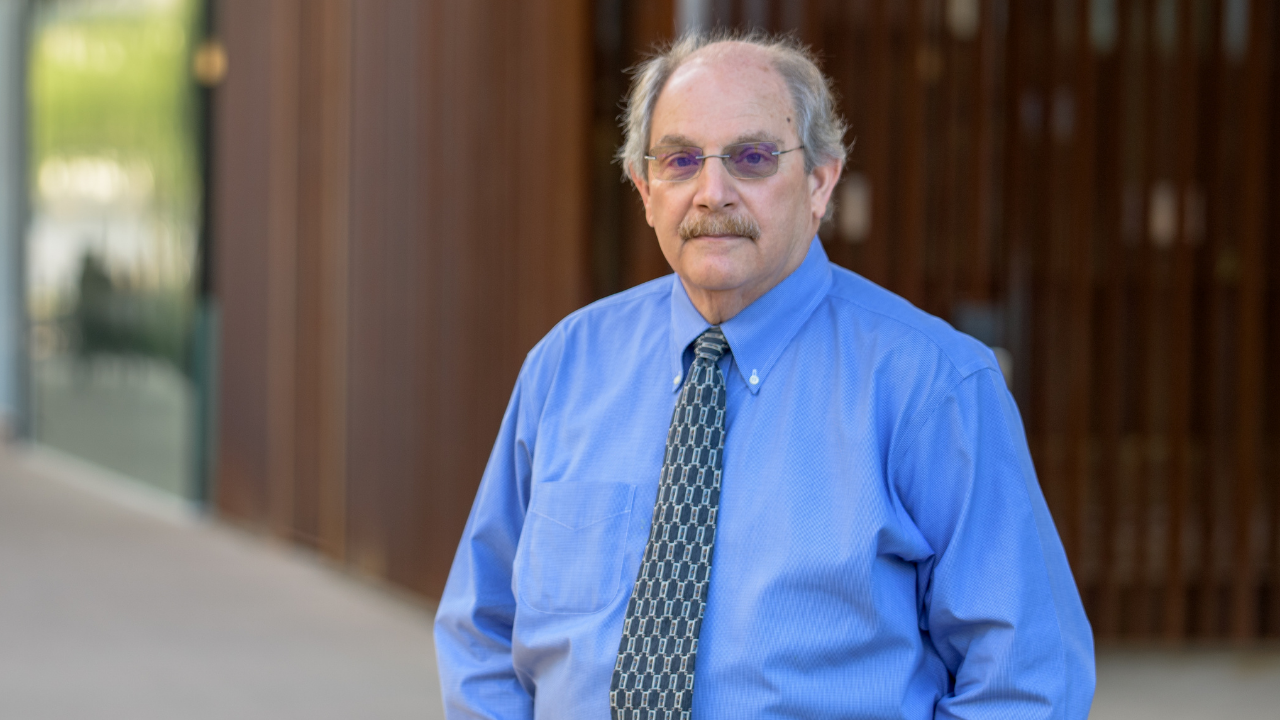Meet the Innovators: David Beyda, MD, Director of the Global Health Program at the College of Medicine – Phoenix
The University of Arizona Health Sciences Global and Online partners with an extensive network of collaborators across the university. This allows us to expand global and online academic offerings in innovative ways to meet the needs of the next generation of health care professionals – at home and abroad. The “Meet the Innovators” series will shine a spotlight on the many experts who are working hard to reshape the future of global health care education, research and practice.
In this edition of Meet the Innovators, we are pleased to introduce you to David Beyda, MD, director of the Global Health program and chair of the Department of Bioethics and Medical Humanism at the College of Medicine – Phoenix, and member of the Health Sciences Global and Online leadership team. We sat down with Dr. Beyda to discuss the College of Medicine – Phoenix’s efforts as they strive to advance the health sciences into the global and online domains.
How has your own experience in global health inspired your passion for global education?
Having grown up overseas from the time I was 7 until I was 18 years old, I always had an interest in becoming a physician and caring for the vulnerable people in the underdeveloped countries where I lived. Being the son of a career diplomat, I was able to experience many different avenues into caring for the vulnerable in countries like Somalia and Laos. Later in life I started an organization that provided care for 40,000 children in 15 countries, and I traveled extensively building medical clinics, teaching local community members to be health care workers, and bringing in medical teams to ensure sustainable care.
Why is it important to you to help further establish the University of Arizona Health Sciences as a leader in the global education space?
Bringing significant education to the global community is a commitment that we as educators have in ensuring that all have access to learning and growth. Our vocation as educators gives us the drive to share our wealth of knowledge with those who seek venues for higher learning.
Tell us about the global projects you are currently leading or contributing to.
I have already put in place bioethics courses for the global community, each of which addresses specific issues relating to culture and its relationship to ethics and the law. In addition, our College of Medicine – Phoenix medical students in the Certificate of Distinction in Global Health program are all participating in global health discovery projects identifying a specific hypothesis or an area of need within global health communities. I have medical students who are embracing the concept of global health and the education behind it. I have moved toward offering online courses for those in the global environment who are interested in learning about the ethics of medical care in their respective countries. We have online courses related specifically to the bioethics of cultures and the unique laws and ethics in each country.
What new online courses and programs are in development? How will these new offerings make an impact in global education?
I am fortunate enough to have developed an ethics and aging course which addresses the ethical issues surrounding older adults, such as autonomy, self-care and marginalization due to age. Developing the course was a wonderful opportunity to look at bioethics from the perspective of the unique culture around older adults. The graduate-level course, MED 502 Human Aging: Ethical Considerations, will be part of the new University of Arizona Health Sciences’ interdisciplinary Innovations in Aging program, which is aimed at providing students around the world with a foundational knowledge of gerontology and how to implement innovations in their careers.
In partnership with University of Arizona Health Sciences Global and Online, we recently conducted a survey* to explore student opinions around the importance of studying bioethics. Nearly 90% of respondents agreed that bioethics is a critical area of study for future health care professionals, and 43% expressed interest in an online graduate certificate or master's program in bioethics. Interested students’ current fields of study included medicine, public health, law and others.
We are using these and other survey insights to conceptualize a potential online master’s program in bioethics. We have a robust faculty advisory committee that is working to brainstorm meaningful curricula. My hope is that those in universities, medical schools and hospitals who are planning on having an ethics committee would find such a program valuable in providing the tools they need to make the best decisions possible as they face ethical dilemmas.
What advice would you give to health sciences students around the world preparing to enter their careers?
There are times when we are unable to recognize our unconscious bias. Finding a way to use ethics as a foundation for decision making without judgment and bias is paramount when one looks at how to make the right and best decisions related to the ethical dilemmas that we face. Learning about the specific cultural aspects of ethics and the law will give health science students the necessary knowledge and background needed to specifically address their unique ethical and moral dilemmas.
*Eligible students included degree programs identified as having alignment to bioethics degree programs. Survey was sent to all students who were enrolled during Spring 2021, Summer 2021, and Fall 2021 as of June 16 (N=12,072).


